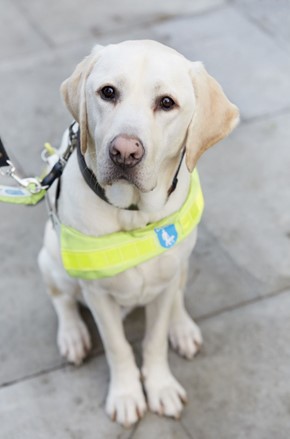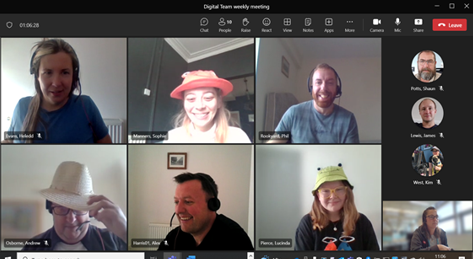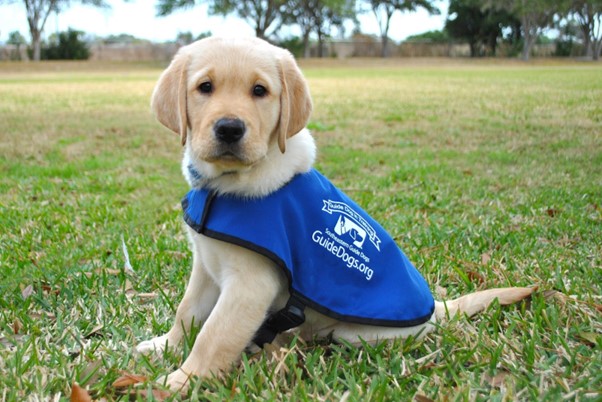Weeknotes 28/07/2023
It’s been a sweltering week at work so we hope you’ve all been keeping cool…sorry I nodded off then…..we hope you have been keeping warm and dry. As El Niño is just getting started, I’m sure this won’t be the last time we are talking about the weather and its impact on our planet.
Content board
Over the past couple of weeks Alex has been trying to understand our backlog in the content board. Alex has met with most of the team to discuss tasks assigned to them. He has been looking at each piece of work in the content board, trying to size up each piece of work and checking with the team to see if each task is still relevant. Alex has also tried to utilise the current labelling we have in planner, to try and make sense of the work the team has in the content board.
Alex has come across some limitations of using the Microsoft Planner, for example he has found out that the planner labelling system has a limit of 25 labels, which is not good for the amount of work the team has coming in. All of the labels that we currently use seem a really useful way of categorising our workload. However, it’s almost impossible to group our work by department at the moment.
At the end of the process Alex hopes to be able to hold prioritisation meetings with staff across the organisation. He will look at each piece of work and assign it a priority level, based on value added to users. The next step would be to meet with department leads to make them aware of the backlog and discuss the priorities.
The overall aim of this work will be to break the cycle of prioritising work using the who shouts loudest. While also taking the strain of difficult conversations from the content designers and digital officers.
New website upgrade
The Natural Resources Wales and Wales Coast Path websites have now been upgraded to the new content management version (Umbraco 8). These updates have been major projects that have had a significant impact on the team’s workload. Owain Jenkins has been amazing at working with the developers to test and fix content related bugs.
Alex has worked with the developers to agree on an implementation plan to upgrade our test site. This plan has been shared with the team and is due to complete on the 18 August.
Overall the upgrade projects have gone smoothly with minor impact on Natural Resources Wales and Wales and its users.
Strategic review of charging
The strategic review of the charging project was one of the largest content releases we have done. It was further complicated with the content freeze we had in place from the website’s upgrade. Feedback from management and wider staff across the organisation has been overwhelmingly positive.
Paul Drury ran a retrospective with lots of key themes captured, which I am sure will help us with future projects and workloads.
Accessibility audit
Over the past couple of weeks Phil has been updating our accessibility statement. We got audited by the accessibility audit team of the cabinet office a couple of months ago. We were asked to update our accessibility statement as part of this new audit.
We have started to improve the wording in the statement, as it’s just far too complicated to understand. It says things like “block quotes are not semantically marked-up”, when it should read “quotation marks on a web page cannot be understood by screen readers because they are not coded correctly”
We also have plans to break the statement up into smaller web pages. We are going to put all of our forms accessibility information onto a separate web page, just like the .GOV team has done: Accessibility statement: SmartSurvey forms
Digital accessibility
We have a legal duty to make sure our websites and apps meet accessibility requirements.
Someone with a disability must be able to access our web-based services and other digital products. They must be able to do this with the same successful outcome as those without disabilities.
Approximately 22.7% of the population of Wales have some form of disability which includes people with:
- low vision and blindness
- cognitive limitations
- deafness and hearing loss
- learning disabilities
- limited movement
- speech disabilities
If you can’t use a mouse, then navigating around a website can be difficult. Information presented in colour can be difficult to interpret if you’re colour-blind. Videos without captions are no good if you are deaf or living with hearing loss. It’s important we do things right on our website to make it inclusive for everyone.
This is just the beginning of a longer-term process to improve customer experience and journeys across our website.
Guide dogs

Phil volunteers for the guide dog charity so understands the need to make our services fully accessible.
Phil often helps people who are blind or partially sighted navigate their way around websites, that’s just one of the ways he volunteers with guide dogs.
The impact of Covid-19 on the way we live and work, means that in some cases the only way of submitting or accessing information is now online. This makes web accessibility even more important.
People with disabilities continue to face daily challenges when using online services.
There was a time in the middle of covid when online food shopping really took off, this was fine if you could see ok. One particular blind person, who has a guide dog called Nelson, could find milk, bread and other products on the shopping website.
They would select what they needed and would add these products to their shopping basket, this was all done with the help of screen reading software. All was going well until they had to check out and pay. The payment system was not accessible at all, it was not coded correctly. Although the person had items in their basket, they could not pay, check out or have their products delivered.
Inclusive and accessible
That’s why it’s important to focus on the entire user journey and why it’s important to make all of our online services as inclusive and as accessible as possible.
- people can’t go to a different provider of environmental permits in Wales
- people can’t go elsewhere to find out if someone has registered to collect their waste
- people can’t go somewhere else for critical information about flood risk
Accessibility is for everyone
Web accessibility also benefits people without disabilities, for example:
- people using devices with small screens such as smartphones
- older people with changing abilities due to ageing
- people who are experiencing temporary disabilities, such as a broken wrist
- people in situations that limit their access, for example in a quiet area where they are unable to listen to audio
- people with a poor internet connection
Tiny forests
Phil is continuing to update and improve the forestry section of our website. A new grants scheme has recently been introduced to encourage the planting of more trees in urban areas.
Tiny Forests in Wales is a new grant scheme that is part of the National Forest programme. It offers grants of between £10,000 and £40,000 if you are planting trees on one site, or up to £250,000 for multiple sites.
Tiny Forest brings the benefits of a forest right into the heart of our cities and urban spaces.
Find out more about Tiny Forests and how you can benefit.
Other things we’ve been working on:
- Shaun has been tidying up odds and ends from SRoC and MCP stuff. His next job is to start looking at river SAC stuff for local authorities
- Apply for a Newborough horse riding permit
Laura and Lucinda did some trio writing with Mannon from translations. We now have a bilingual application form and gov.pay payment link that we can test with users – we just need to find some willing volunteers now! - Apply for Flood Risk Activity permit
Laura and Lucinda have been working on this (on and off) for the best part of a year and we’re finally ready to get the application form translated. The team have been really great, letting us try new things and experiment with their form while we’ve been learning as we go. The new form has less questions, a simpler layout and users no longer need to choose where to send the form! It’s all packaged with a fancy new start page, and a page about all the information users need to provide in their application. We will publish in BETA and have a feedback form for users so we can keep improving the service - This week we put our thinking caps on for our weekly team Mural to share updates regarding different items of work that are going on across the team. Being a remote team, we find that sharing priorities in our weekly meetings gives us a clearer picture of the team’s overall capacity and helps us meet our targets

- Smart Survey governance and improvements
Paul Drury has created a new trello board for the Smart Survey governance and improvements project. A small team has been created and tasks have been added based on the collaborative workshop held on Wednesday 19 June. Smart survey has become an integral tool for the digital team and this project should help us define and standardise how we use it, improving the end service we offer - James is writing a web page for users who have been automatically opted-in to our basic Flood Warning Service. He’s also investigating training in Google Analytics and Hotjar so our team can get the most out of our analytical tools
Fun Fact Friday

Did you know…it costs £34,600 to breed and train a single guide dog, and £54,800 to support a guide dog from birth to retirement. There are also 4,044 people with guide dogs throughout the UK.